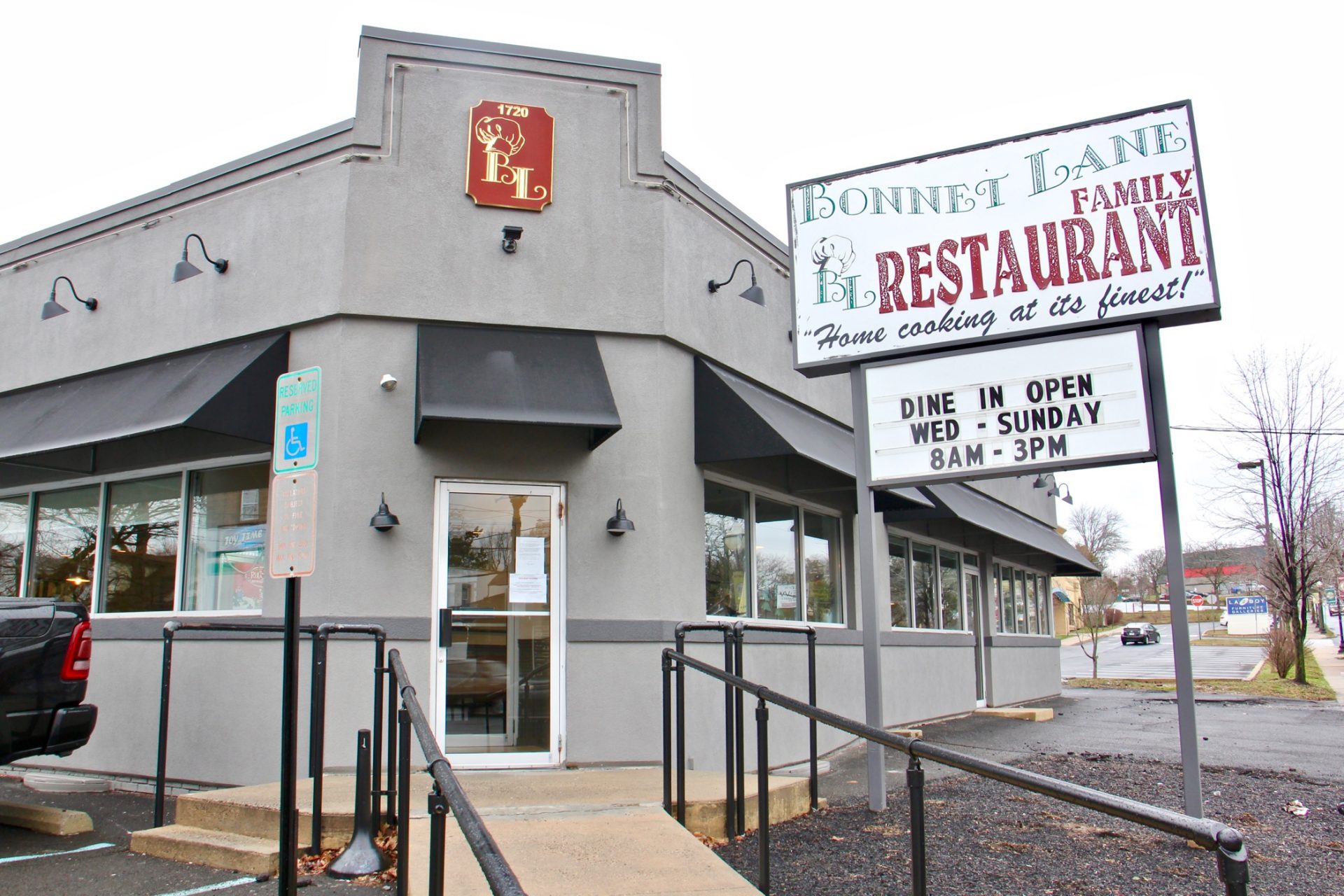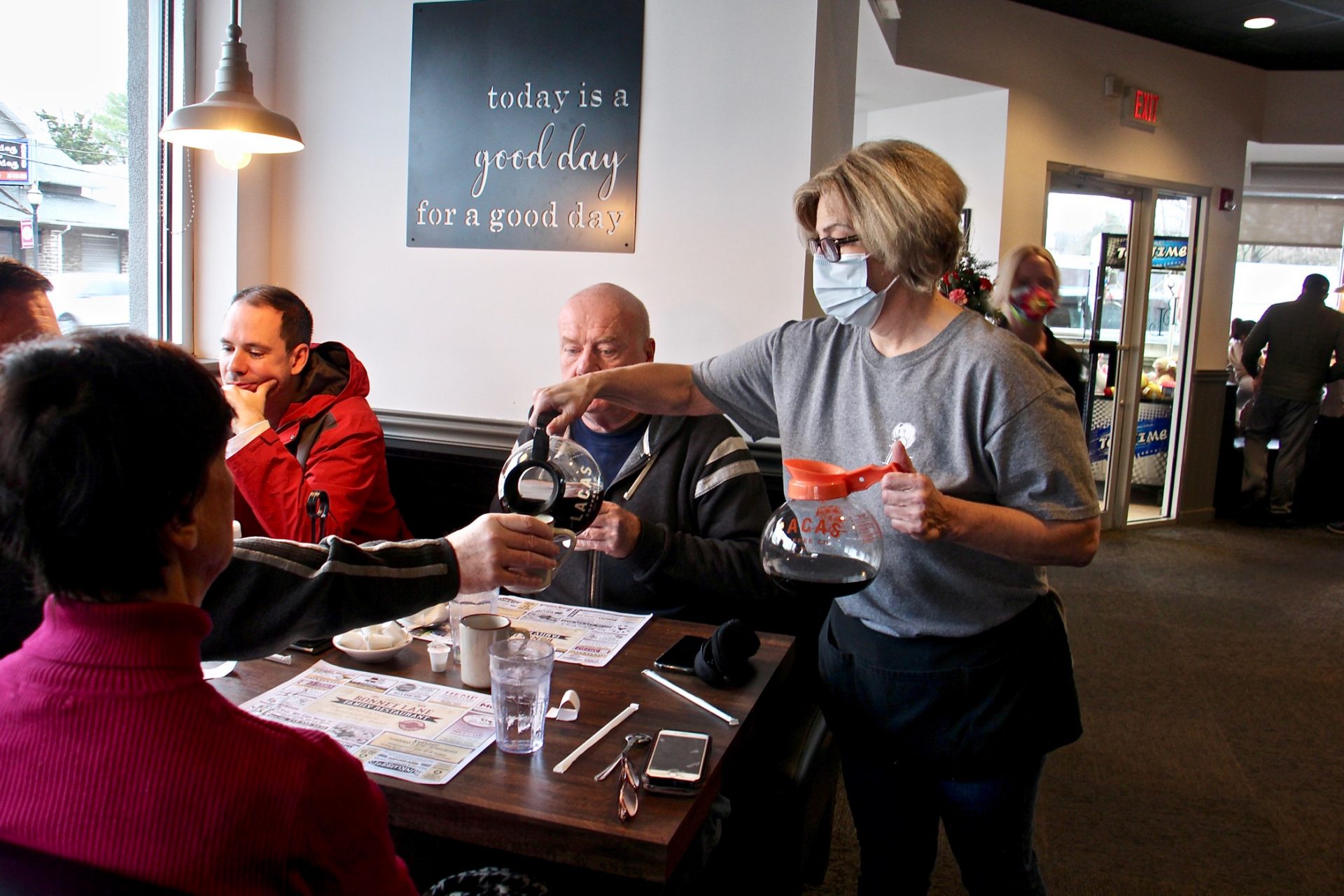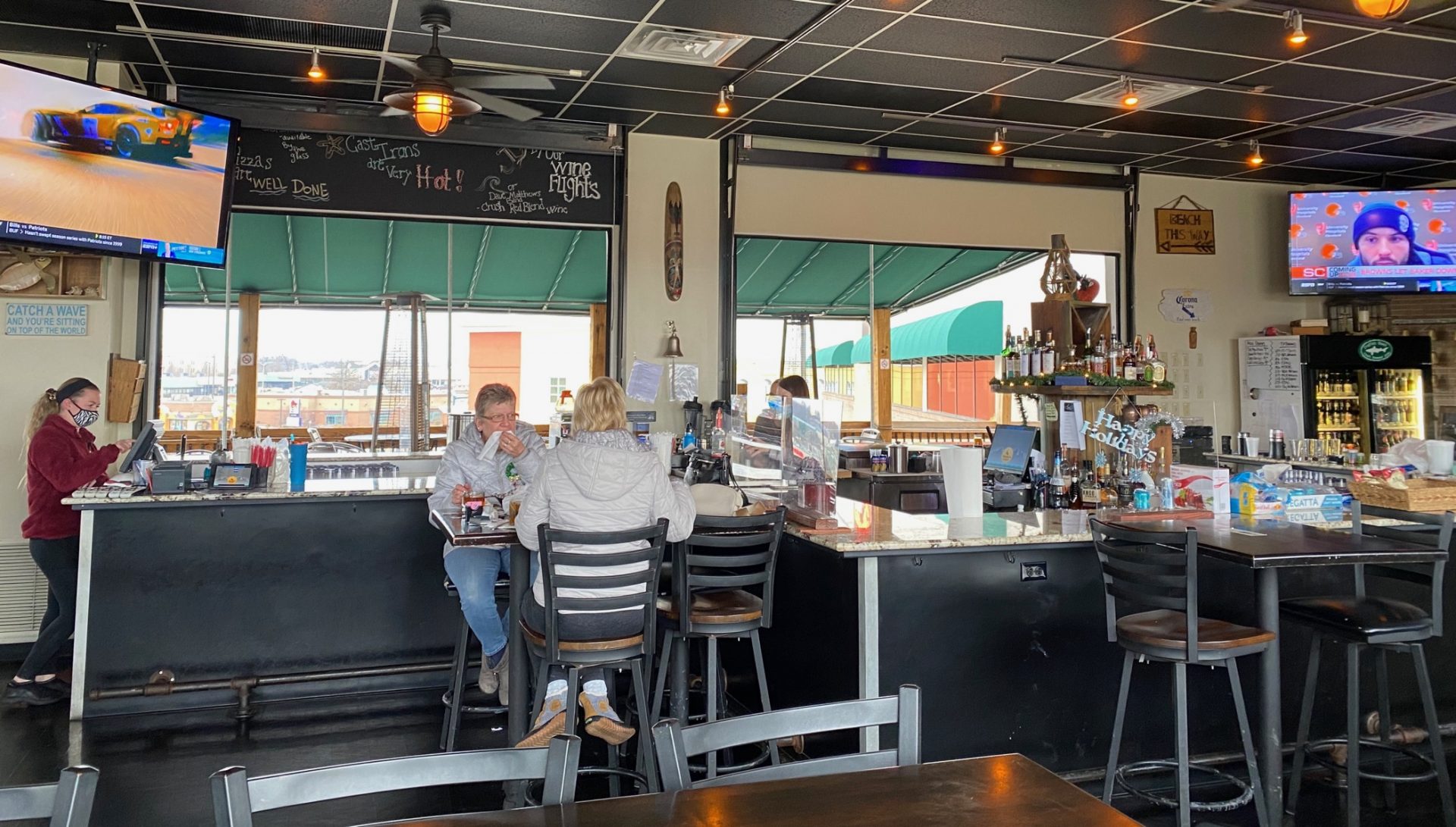
Mike Grafenstine works in the kitchen of his restaurant in Abington, Pa.
Emma Lee / WHYY

Mike Grafenstine works in the kitchen of his restaurant in Abington, Pa.
Emma Lee / WHYY

Emma Lee / WHYY
Mike Grafenstine works in the kitchen of his restaurant in Abington, Pa.
(Philadelphia) — Some restaurants and bars in Pennsylvania are choosing to end the year with a shutdown showdown — inviting forced closure and lawsuits by defying a statewide ban on indoor dining.
The Pennsylvania Department of Health sued 22 of them in Commonwealth Court two days before Christmas, saying their continued operation “constitutes a public health threat” as coronavirus cases surged to their highest levels since the start of the pandemic. Even so, hundreds of businesses appear to be flaunting the order, based on lists circulating on social media.
For some businesses, the decision to stay open is about staying afloat.
Michael Grafenstine owns Bonnett Lanes, a diner in Abington. He said Gov. Tom Wolf’s decision to ban indoor dining weeks before Christmas would prevent him from keeping his 21-year-old eatery alive.

Emma Lee / WHYY
Bonnet Lane Family Restaurant in Abington, Pa., offers dine-in service despite the governor’s order.
“Listen, I’m not a pizza shop, I’m not a cheesesteak shop, I’m not a wings shop — I’m a diner. 95% of our business is dine-in,” Grafenstine said. “Take-out … just doesn’t make sense.”
Even though the diner is flaunting current regulations, Grafenstine said he and his employees are following other COVID-19 protocols by operating at 25% capacity and ensuring every employee wears a mask.
“There is nothing political with me whatsoever,” Grafenstine said. “I’m just trying to survive.”

Emma Lee / WHYY
Laura Tierney, manager of Bonnet Lane Family Restaurant in Abington, Pa., serves customers in the dining room.
Restaurant-goers opposed to the shutdown order have also organized.
Dave Golowski, who lives in the Leesport area of Berks County, said he became galvanized when the most recent round of business restrictions intended to curb the spread of COVID-19 were implemented on Dec. 12.
He said a friend approached him, and asked, “What can we do for these small businesses?”
In response, he started a directory, called PAlockdown.com, which now has 600 entries for businesses purportedly operating in defiance of the temporary statewide order halting indoor dining until Jan 4.
Some businesses on the list, when called, denied knowing they were on it and said they weren’t actually defying the governor’s order.
In some cases, that dynamic has been backed up by the Pennsylvania Department of Agriculture, one of the state agencies enforcing the shutdown order on behalf of the Department of Health. State officials inspect each business they receive a complaint about and give them a chance to comply before taking any action, said spokesperson Shannon Powers. In some cases, they’ve found that businesses reported as open on various lists circulating on social media had not opened their dining rooms.
Golowski said some could simply be keeping their heads down.
“They don’t want to draw any more attention to it,” he said, and explained that anyone can add a business to a list.
Golowski, who works for a utility contracting company and owns rental properties, said that his income has been hit because his tenants cannot pay rent, and a federal moratorium bars him from evicting them. He believes targeting restaurants is arbitrary and unjust.
“How do you sue a restaurant or bar or small business for being open, while you’re allowing other businesses to be open?” Gowolski said.
The closures have also prompted businesses to adapt and in some cases blur the line between indoor and outdoor dining.
Sharky’s Cafe, a sports bar and restaurant in Latrobe, Pa., is one of the businesses named in the lawsuit filed by the state. Owner Johnathan Huemme said they plan to fight it on the basis that they don’t believe their open space is in violation at all.
“The health board has been back and forth on what they believe is outdoor versus not outdoor,” Huemme said. “We’re in a peculiar situation.”
The cafe includes two dining spaces, one of which is entirely indoors, and closed. In the other, known as The Pier, garage doors line the walls, opening on one side onto a covered deck.

Provided by Sharky's Cafe
Sharky’s Cafe in Latrobe, Pa., continues to serve customers indoors despite a statewide ban on indoor dining.
The business is getting by, but not making a profit, at its current reduced capacity, according to the owner. In addition to practical concerns, Huemme said he is frustrated by what he and other restaurant owners say is unfair targeting of their businesses.
“They’re not policing it when they don’t want to. They’re picking and choosing,” he said, with regards to which dining spaces are closed.
The state points to studies conducted by Yale and Stanford universities linking COVID-19 spread to restaurants when issuing its most recent shutdown order.
“We have tremendous sympathy for businesses that are suffering,” said Powers, with the state Department of Agriculture. At the same time, she said, restaurants can change how they get people food, providing delivery or takeout, “but we have no alternative way of getting health care” if hospitals become overwhelmed.
Next week, the most recently imposed limitations will expire.
“Our mitigation efforts over the past several weeks are working,” said Wolf, when announcing he would not renew them.
It is likely that many businesses that violated the shutdown orders will face no enforcement at all.
“We are getting thousands of complaints, but do not have enough inspectors to follow up on the volume,” Powers said.
Other restrictions, such as limits on indoor capacity, will continue, and a patchwork of state and local entities will continue to enforce them. Those businesses named in the state’s lawsuit could be forced to pay compensatory and punitive damages if they lose. Keystone Crossroads reached out to the state Department of Health to see if other businesses have been added, and what the future of the suit is once the temporary order expires, but at time of writing has not yet received answers.
Another lawsuit, in which two business owners and a local trade association argued that the Wolf administration does not have the power to ban indoor dining, was rejected by a federal judge on Christmas Eve.
Keystone Crossroads is a statewide reporting collaborative of WITF, WPSU and WESA, led by WHYY. This story originally appeared at https://whyy.org/programs/keystone-crossroads.

Sometimes, your mornings are just too busy to catch the news beyond a headline or two. Don’t worry. The Morning Agenda has got your back. Each weekday morning, host Tim Lambert will keep you informed, amused, enlightened and up-to-date on what’s happening in central Pennsylvania and the rest of this great commonwealth.
The days of journalism’s one-way street of simply producing stories for the public have long been over. Now, it’s time to find better ways to interact with you and ensure we meet your high standards of what a credible media organization should be.